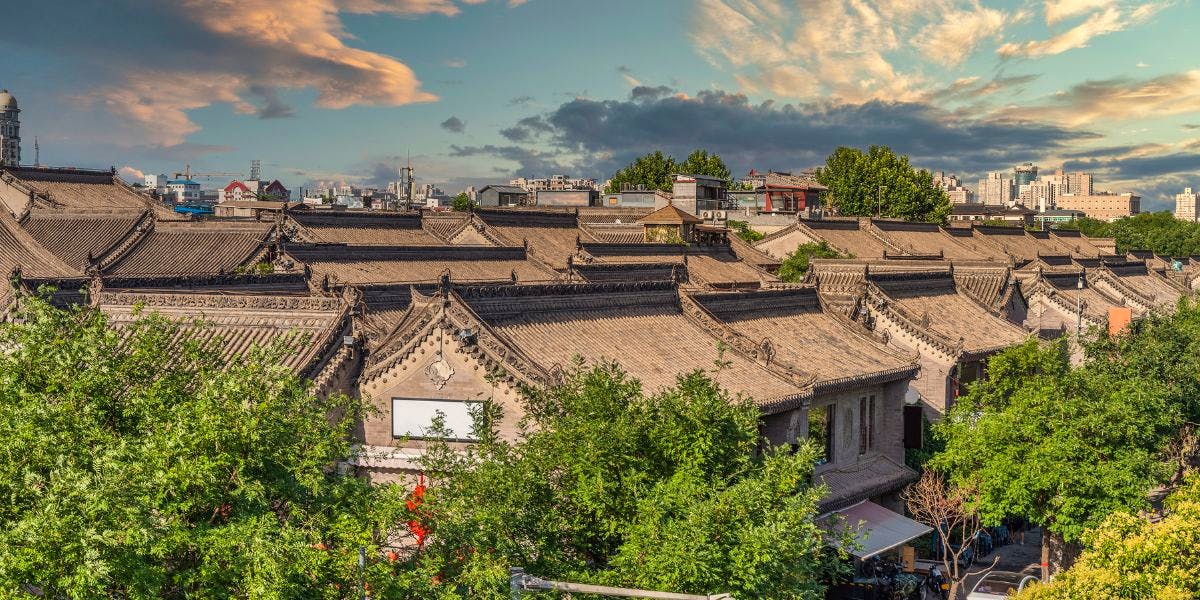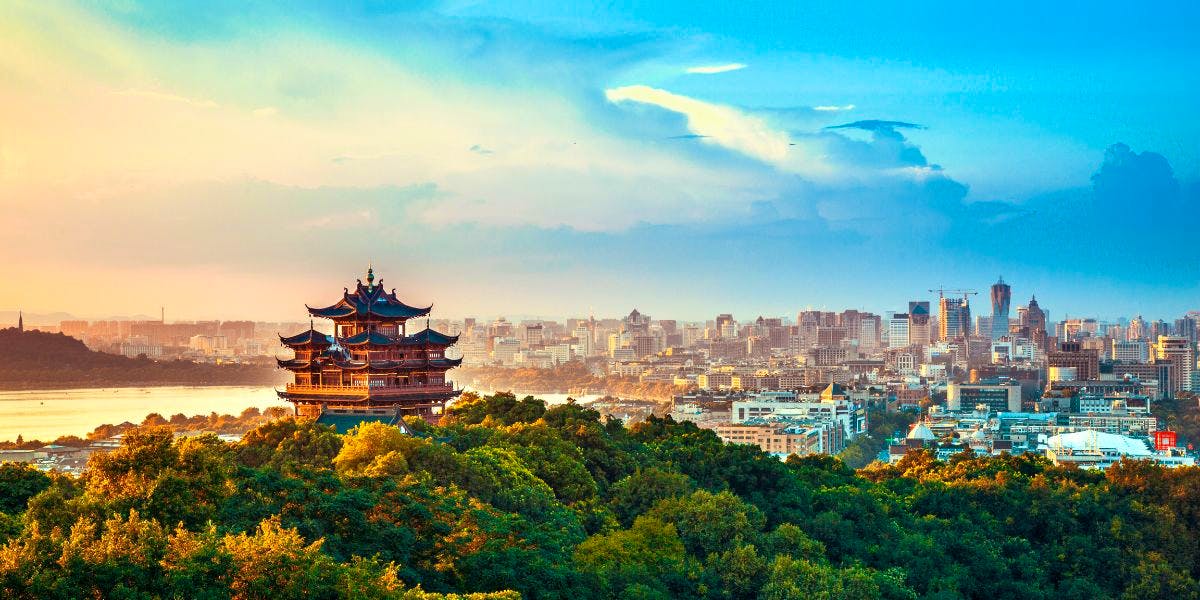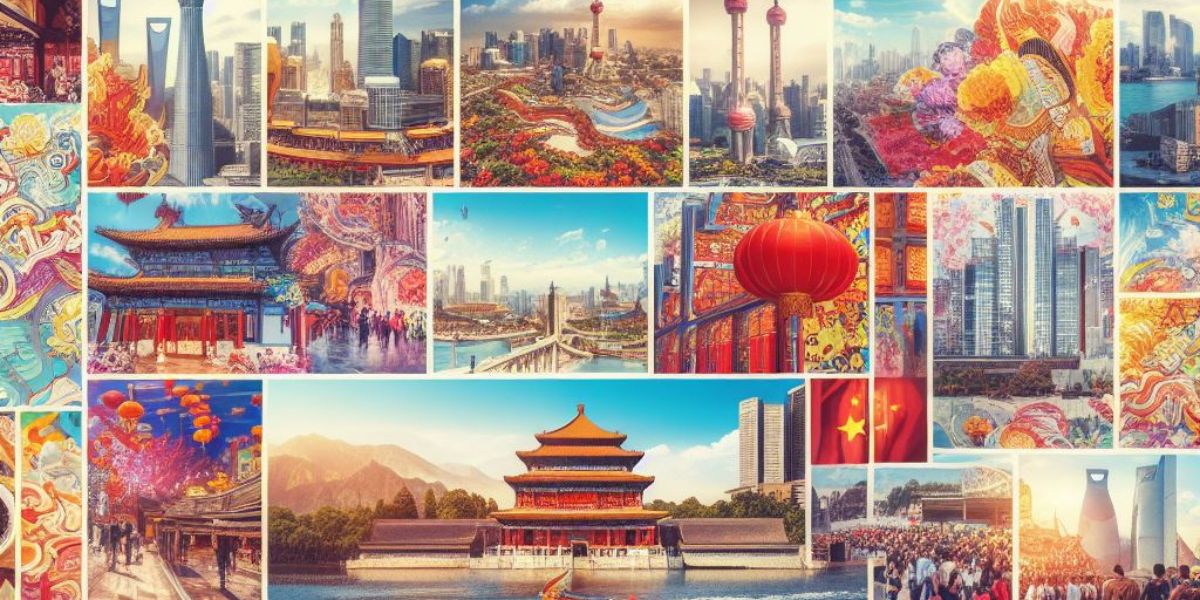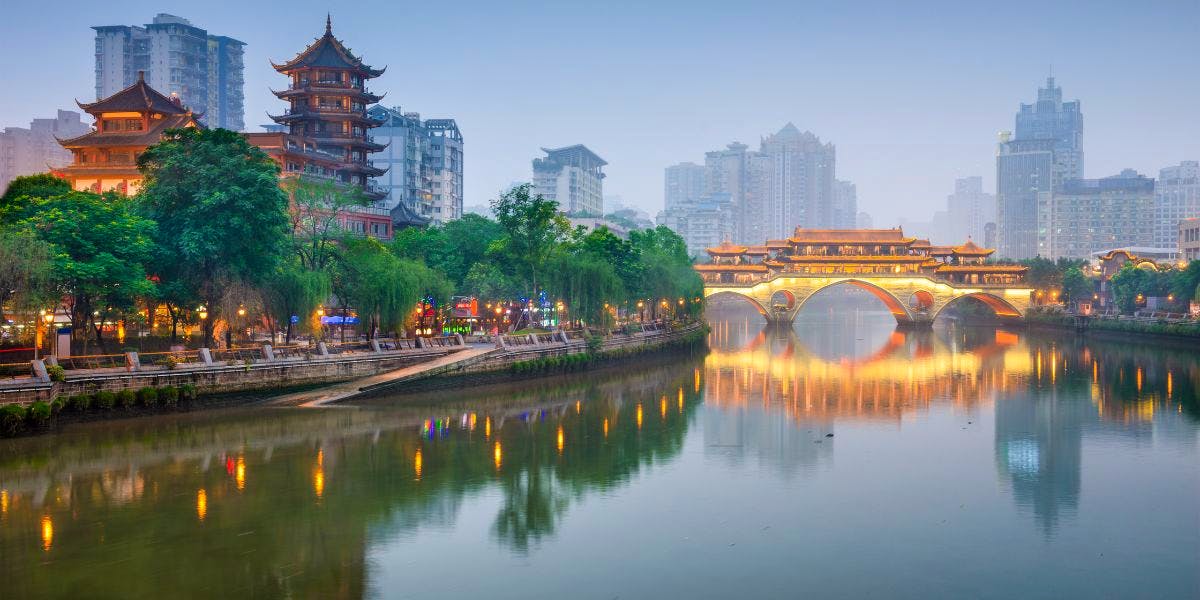In a land where ancient traditions and cutting-edge innovations collide, China beckons international students with open arms. But here’s the kicker – China isn’t just one homogenous experience. It’s a symphony of cities, each one unique in its own way. Whether you’re craving the scent of history wafting through Xi’an’s ancient streets or the buzz of modernity in the neon-lit canyons of Shanghai, there’s a city that fits your rhythm. Buckle up as we navigate the intriguing urban landscapes of “The Middle Kingdom” and help you uncover six ideal cities in China for your study abroad experience.
Criteria for Choosing a City
When it comes to choosing a city in China for your higher education journey, there are several essential factors to take into account. Remember that everyone has different preferences, and some factors might be more important to you than others.
- Cost of living: The cost of living will vary depending on the city. Consider your budget and how much you can afford to spend on tuition fees, accommodation, transportation, food, entertainment, travel, and other expenses.
- Quality of education: Make sure to do your research on universities in different cities. To determine the quality of education, look at university rankings, faculty qualifications, and research output. It is also helpful to consider what other students and alumni are saying.
- Availability of scholarships: If you will need financial assistance to pursue your studies, consider the availability of scholarships when choosing a city to study in. Some cities may offer more scholarship opportunities than others.
- Cultural experience:China is a culturally diverse nation, so seek a city that aligns with your interests, whether you’re drawn to ancient history, modern art, or vibrant street markets. For example, if you are interested in China’s ancient history and heritage, you may want to consider Xi’an. For a modern and advanced culture, consider the booming economies of Shanghai, Beijing, and Hong Kong.
- Language barriers: Assess your Mandarin language skills and determine whether you need a citywhere English is widely spoken. if you’re looking to improve your language skills, some cities may have more opportunities to practice Mandarin with native speakers. Shanghai and Hong Kong are more cosmopolitan and bilingual than Chengdu or Kunming.
Top Cities for International Students in China
1) Beijing
Great For: History buffs, Mandarin learners, cultural immersion
Cultural experiences: The Great Wall, Forbidden City, Temples of Heaven, 798 Art District, Wngfujing Snack Street, Peking Opera, Beijing Roast Duck and hutong culture
Cost of Living: One of the most expensive cities in China, but still cheaper than many Western cities. The average monthly living cost for a student is about 6,000 yuan (930 USD), including rent, food, transportation, and entertainment.
Top Universities: Peking University, Tsinghua University, Beijing Normal University
No. of International Students: Over 10,000 from more than 150 countries.
Language Spoken: A relatively easy city to communicate with locals in Mandarin Chinese, as most people speak standard Mandarin or Putonghua. However, some locals may also speak with a Beijing accent or dialect, which can be difficult to understand. English is not widely spoken in Beijing, so you may need to learn some basic Chinese phrases or use a translation app to get around. Mandarin immersion is encouraged.
2) Xi’an  Great For: History buffs, ancient civilization lovers, foodies
Great For: History buffs, ancient civilization lovers, foodies
Cultural experiences: The Terracotta Army, the Ancient City Wall, the Big Wild Goose Pagoda, the Muslim Quarter, biangbiang noodles, roujiamo, yangrou paomo, and shaanxi liangpi.
Cost of Living: A more affordable city than Beijing, with a lower cost of living. The average monthly living cost for a student is about 3,500 yuan (540 USD).
Top Universities: Xi’an Jiaotong University, Northwestern Polytechnical University, Xidian University, and Shaanxi Normal University
No. of International Students: Over 5,000 from more than 100 countries.
Languages Spoken: Most people speak standard Mandarin or Putonghua. However, some locals may also speak with a Shaanxi accent or dialect. English is not very common in Xi’an. Mandarin immersion is encouraged.
3) Guilin/Yangshuo 
Great For: Nature lovers, adventure seekers, relaxation seekers
Cultural experiences: Li River cruise, cycling in the countryside, hiking in the mountains, exploring the karst caves, ethnic minority villages, Tai Chi, calligraphy, beer fish, rice noodles, and bamboo rice
Cost of Living: Cheaper than Beijing and Xi’an, with a lower cost of living. The average monthly living cost for a student is about 2,500 yuan (390 USD).
Top Universities: Guilin University of Technology, Guilin University of Electronic Technology, Guilin Medical University, Guilin Institute of Tourism
No. of International Students: Over 2,000 from more than 50 countries
Language Spoken: A relatively difficult city to communicate with locals in Mandarin Chinese, as many people speak with a Guilin accent or dialect, which can be very different from standard Mandarin. English is more common in Guilin/Yangshuo than in other cities, as it is a popular tourist destination.
4) Shanghai
Great For: History buffs, Mandarin learners, cultural immersion
Cultural experiences: The Bund, Yuyuan Garden, Oriental Pearl TV Tower, Shanghai Museum, Tianzifang/Xintiandi, Zhujiajiao Water Town
Cost of Living: One of the most expensive cities in China, but still cheaper than many Western cities. The average monthly living cost for a student is about 6,000 yuan (930 USD).
Top Universities: Fudan University, Shanghai Jiao Tong University, Tongji University, East China Normal University
No. of International Students: Over 10,000 from more than 150 countries.
Language Spoken: Most people speak standard Mandarin or Putonghua. However, some locals may also speak with a Shanghai accent or dialect. English is not widely spoken.
5) Chengdu
Great For: Foodies, nature lovers, panda fans
Cultural experiences: Chengdu Research Base of Giant Panda Breeding, Sanxingdui Museum, Leshan Giant Buddha, Jiuzhaigou Valley, Wuhou Temple, Sichuan Opera, Chengdu Tea Houses
Cost of Living: Cheaper than Beijing and Shanghai, with a lower cost of living. The average monthly living cost for a student is about 5,000 yuan (780 USD).
Top Universities: Sichuan University, Southwest Jiaotong University, Southwestern University of Finance and Economics, University of Electronic Science and Technology of China
No. of International Students: Over 10,000 from more than 100 countries.
Language Spoken: Most people speak standard Mandarin or Putonghua. However, some locals may also speak with a Sichuan accent or dialect. English is not very common.
6) Hangzhou
 Great For: Nature lovers, tea enthusiasts, digital nomads
Great For: Nature lovers, tea enthusiasts, digital nomads
Cultural experiences: West Lake, Lingyin Temple, Xixi Wetland Park, Hefang Street, Longjing Tea Village, Grand Canal
Cost of Living: A cheaper city than Beijing and Shanghai, with a lower cost of living. The average monthly living cost for a student is about 4,000 yuan (620 USD).
Top Universities: Zhejiang University, Hangzhou Dianzi University, Zhejiang University of Technology, Zhejiang Gongshang University
No. of International Students: Over 8,000 from more than 100 countries.
Language Spoken: Most people speak standard Mandarin or Putonghua. However, some locals may also speak with a Hangzhou accent or dialect. English is not very common in Hangzhou.
7) Hong Kong 
Great For: Culture lovers, foodies, city explorers
Cultural experiences: Tai Hang Fire Dragon Dance, Cheung Chau Bun Festival, Tai Kwun, Hong Kong Museum of Art, Xiqu Centre, dim sum, xiao long bao, egg tarts, pineapple buns, milk tea
Cost of Living: One of the most expensive cities in China and the world. The average monthly living cost for a student is about 15,000 yuan (2,330 USD).
Top Universities: Hong Kong Metropolitan University, The University of Hong Kong, The Chinese University of Hong Kong, The Hong Kong University of Science and Technology, City University of Hong Kong
No. of International Students: Over 20,000 from more than 100 countries.
Language Spoken: Cantonese is the most widely spoken language, followed by English. Mandarin is mainly used by visitors and immigrants from mainland China. British Sign Language is used by the deaf community.
Apply Now for the 2024 Intake Are Open
So, which city aligns with your aspirations? Each of the cities we’ve explored has its unique charm, so be sure to carefully weigh the factors that matter most to your personal needs and preferences. China is a large country with many more destinations to study in beyond this list. The country’s diverse offerings make it an exciting destination for students from all walks of life, from history buffs to nature lovers to aspiring entrepreneurs. Ultimately, the best city for you will align with your goals, interests, and academic pursuits.
Now is the perfect time to take the next step and turn your dream of studying in China into a reality. Applications for the 2024 academic year are now open. Get started by exploring the diverse range of programs and universities on our platform. Your educational journey in China begins with a single click.
- Prepare for the Future with Artificial Intelligence or Computing Programs at United International College (UIC) - December 10, 2024
- Juggling Life’s Commitments: Tips from a TIEMBA Alumna and Working Mother - October 19, 2024
- How TIEMBA Alumni are Making an Impact in the World - October 3, 2024

